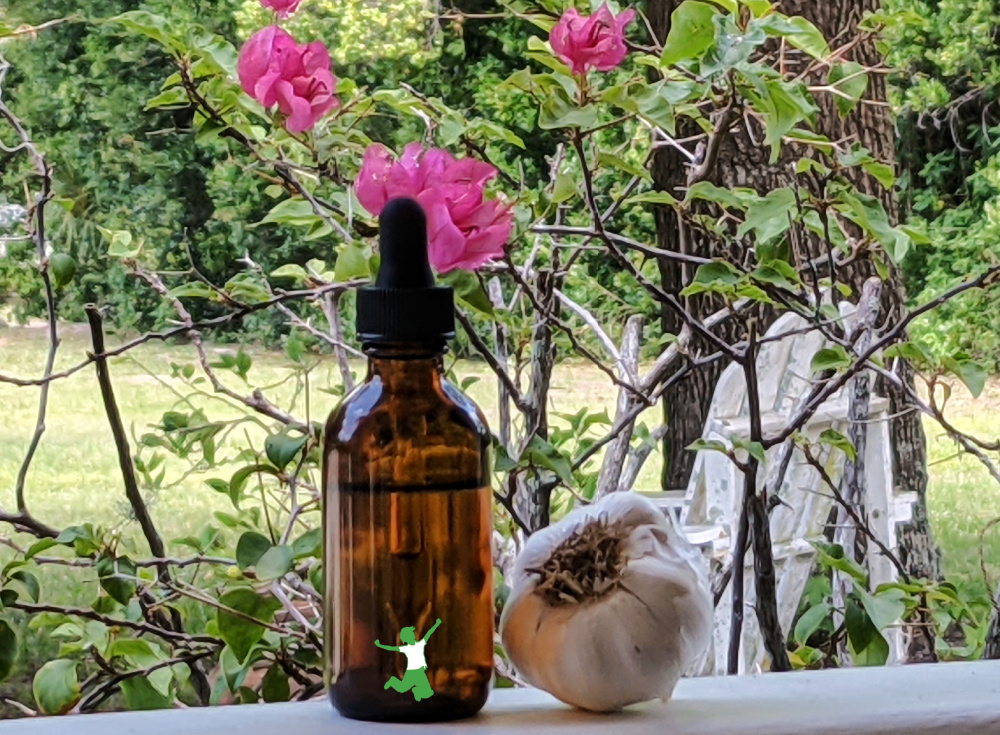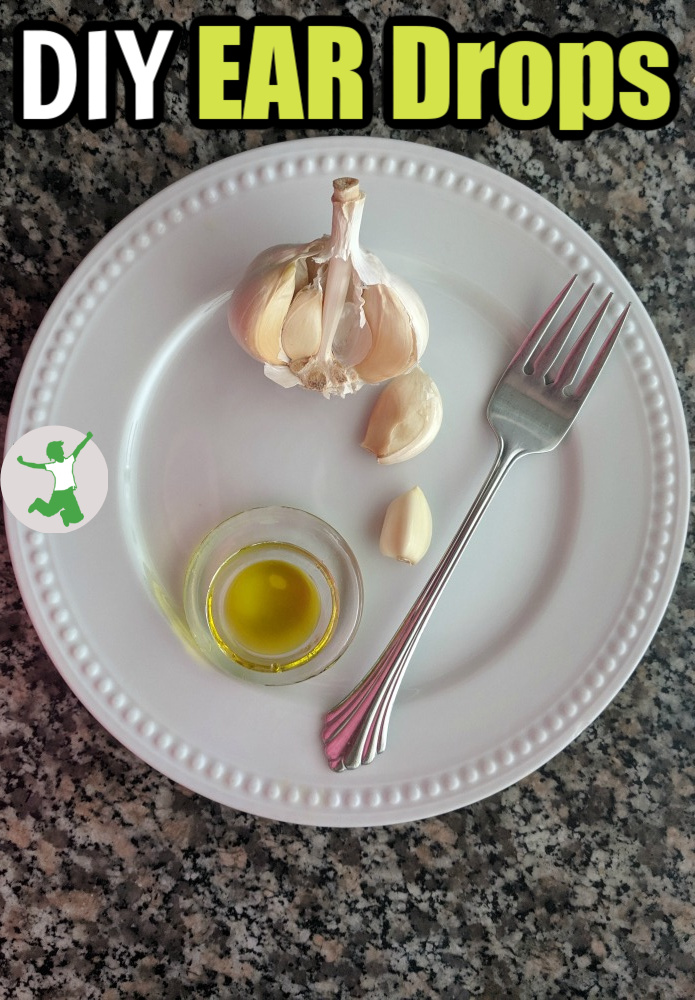Table of Contents[Hide][Show]
Simple, one-step method for making garlic-infused ear drops to help provide relief from infections such as swimmer’s ear, pain from otitis media or annoying itchiness.

When ear discomfort strikes, having safe, effective drops to use is important for fast relief!
While there are numerous brands of ear drops to use from the pharmacy or health food store, it is far easier, more effective and less expensive to make some yourself using a potent and fresh clove of garlic and some quality oil.
I use the method recommended by Dr. Natasha Campbell-McBride MD, author of the books Gut and Psychology Syndrome and the most recent Gut and Physiology Syndrome.
The simple method for making your own ear oil involves the infusion of the potent antimicrobial sulfur compound allicin present in copious amounts in garlic into unrefined oil.
Types of Garlic to Use for Ear Drops
Several types of fresh garlic are available at farmers’ markets and stores.
All work wonderfully well for making therapeutic ear oil with the exception of elephant garlic (Allium ampeloprasum).
Elephant garlic heads are large, covering the entire palm of an adult’s hand in some cases.
Despite its size, the flavor of elephant garlic is very bland. It tastes more like a leek.
The less powerful flavor and aroma are indicative of inferior healing properties to other types of garlic.
Thus, It is recommended to go for the most potent small heads of garlic that are white, red, or purple. Organic is more potent than conventionally grown as well.
Best Infusing Oils
While I prefer to use 100% pure extra virgin olive oil to make my ear drops as recommended by Dr. Campbell-McBride, other oils are appropriate as well.
Good options to consider include:
- Anti-microbial virgin coconut oil (this brand and this brand are my go-to’s)
- Unrefined avocado oil
- Unrefined sesame oil
Never use processed vegetable oils like canola as they are usually rancid. This can introduce free radicals and residues into the ear canal which can make matters worse!
Pure, unrefined, and preferably organic oils only!
Note that if you choose to use VCO, you may need to liquefy it by slightly warming it on the stove (do NOT use the microwave) prior to the infusion step below.
This is why EVOO may be a bit easier to use as no warming is required. It stays liquid in the pantry year-round. Coconut oil tends to solidify in the pantry during colder months.
Preparation Method
To infuse the allicin from garlic into the oil, follow these steps.
- Crush a clove of garlic and mix with 1-2 tablespoons of oil. A garlic press is the easiest way to accomplish this. You can also use the flat end of a butter knife or small fork and press the clove on a wooden (not plastic) cutting board.
- Let the mixture sit on the counter at room temperature for 30 minutes.
- Strain out the garlic pieces from the oil into a small bottle. This is what I use.
- Apply the allicin-infused oil to the ear using a clean eyedropper.
- Any leftover oil may be kept at room temperature in a bottle with a tight-fitting lid. Use within 1-2 days.
I do not recommend making a large batch to fill a 4-8 ounce bottle and keeping it in the medicine cabinet. It is far more potent to make a small amount each time you need it.
If you wish to make a shelf-stable mixture that is preserved in a stabilizing medium, this article on how to make homemade tinctures describes the method in detail.
How to Use Ear Oil
How much oil to apply? Here’s how we’ve used ear drops in our family over the years.
For itchy ears, once per day as a natural antifungal (the usual cause of the itchiness) is usually sufficient.
For ear infections and pain, apply two or three times per day.
Drip room temperature or slightly warmed garlic-infused oil into each ear using a clean eyedropper.
Laying on one side for a few minutes to allow the oil to fully permeate inside the ear before applying to the other ear can be helpful too.
Placing a towel under the head to catch any oil that runs out when switching to the other side prevents stains on pillows, bedding or furniture.
For ages 1-10, use 1 drop per ear. For those over age 10, use 2 drops per ear.
You may wish to consider homeopathic remedies for ear infections to use in conjunction.
I’ve had great results with homemade ear oil alone.









Leave a Reply